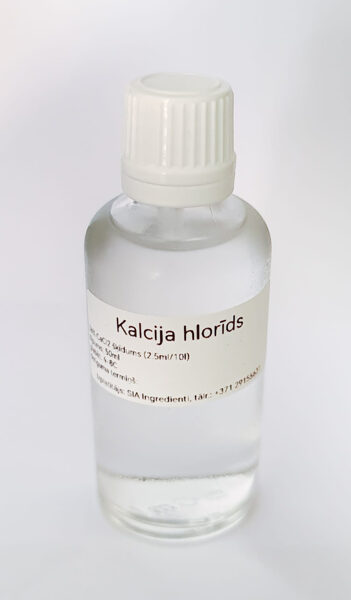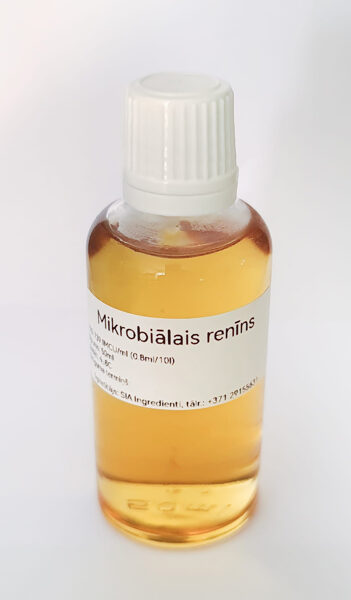Required:
- 3l milk (2.5%-3%)
- Micromilk ME: 0.32gr 0.09gr (0.03 doses), or Lactoferm MSE cheese culture: 0.32gr
- Calcium chloride (CaCl2): 0.6ml
- Rennet: 2 drops (strength 710 - 739 IMCU/ml) - 1/10th of the usual dose
- Salt
(The video has subtitles in several languages)
Recipe
- Before starting, we should disinfect all surfaces and dishes that may come into contact with milk.
- Determine whether milk is suitable for making cheese. It has to go through the bactericidal phase (cold milk from the previous day usually works). If you have a PH meter, the PH level of milk should not be outside the PH 6.55–6.75 range (which is very rare).
- Pasteurize milk: heat it to 65 °C and keep it at this temperature for 30 minutes. Can heat up to 70 °C and hold for 15 minutes.
- Quickly cool the milk, for example, in a cold bath to 25 °C (it could take 20 minutes), or heat the already pasteurized milk.
- Add cheese culture Micromilk ME (0.32gr.) and leave for 2 hours.
- Add calcium chloride (0.6ml), rennet (0.09ml) t o the milk and stir within 60sec. Calcium chloride and renin before adding to milk, must be diluted with 50ml of clean water first.**
- Leave it for 12-14 hours so that the whey forms on top.
- Put the cheese mass in cheesecloth and let it drain for 5-6 hours.
- Put it in a bowl and add 1.5gr. salt per 100gr. of cheese.
- Mix or blend. If the mass is too thick, add a little more whey and stir.
Spices (as needed):
- 1-1.5gr. of salt per 100gr of cheese
- up to 2.5 grams of lemon pepper + a little more pepper to taste
- fresh dill
We look forward to your feedback!
* Freshly milked milk has bactericidal properties for a few hours, during the so-called bactericidal phase, when bacteria suppress reproduction. Cooling the milk prolongs the bactericidal phase. If the milk is obtained in strict compliance with sanitary regulations and rapidly cooled to +40 °C, the duration of the bactericidal phase is 24 hours and more. At the same temperature bactericidal phase period, impure milk has at least two to three times shorter temperature. The duration of the unrefrigerated milk phase is, on average, 2 hours.
(Source: http://www.ezerzeme.lv/lv/zinas/noderigi/5222/par-piena-kvalitati)
** The time of milk coagulation (thickening) depends on the quantity of calcium chloride and rennet. It can be adjusted for best coagulation time, which should ideally be 12 minutes. For instance, if the first time your milk has thickened after 20 minutes, then increase the next dose of enzyme.



